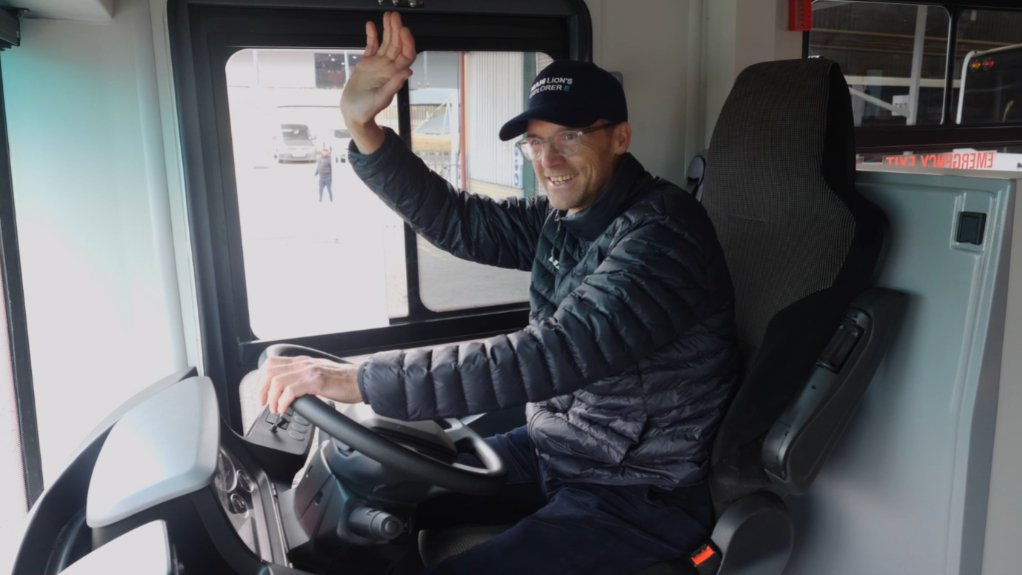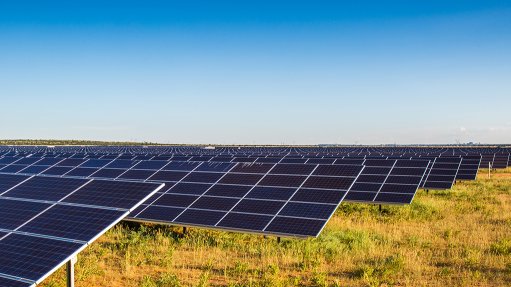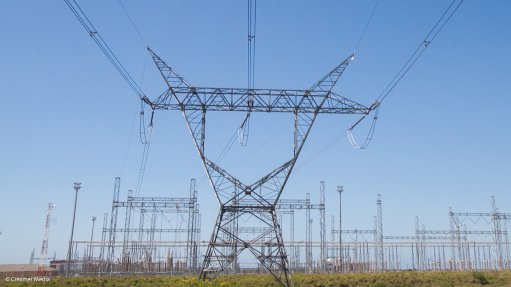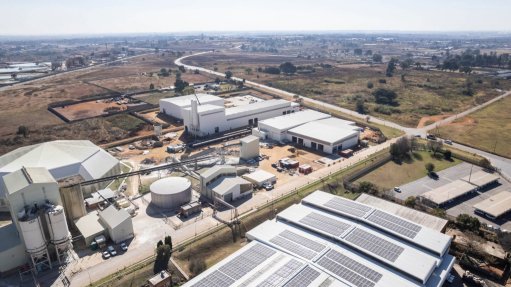Local government may soon have no choice but to buy electric buses – MAN SA boss
A strong global push towards using fully electric buses in cities, coupled with South Africa’s lethargic progress – if any – towards clean fuel, may soon leave local city councils with no alternative but to buy electric buses, says MAN Truck & Bus South Africa (MAN SA) CEO Jan Aichinger.
South Africa’s emission and fuel standard is set at Euro II, however, the global production of city buses using this level of dirty fuel may soon come to an end in favour of much cleaner and/or electric buses.
The European new-bus market is already at 50% battery electric year-to-date, says Aichinger, and this number is expected to reach 100% by 2030.
China has an even higher percentage of electric buses in use. As of 2024, battery electric, hybrid electric and fuel-cell electric city buses accounted for almost 100% of the Chinese new-bus market.
Also, Europe, currently at Euro VIe (the fourth enhancement of Euro VI standards), is set to go to Euro VII by 2027.
India and Brazil are at Euro VI, Russia is at Euro V and China is at China VI, which is equivalent to Euro VI, says Aichinger.
“South Africa is maybe going to Euro V in 2027 – nothing seems sure,” says Aichinger.
“The problem is that nobody is going to keep on developing Euro II city buses for a very small right-hand-drive bus market buying small batches of vehicles, all with different specifications – high-floor for Rea Vaya in Johannesburg and smaller, low-entry for MyCiTi in Cape Town, for example.
“We, as a local industry, want to supply the local market with products of international standards, i.e. Euro V or Euro VI buses, which does not make sense if the equivalent fuel quality cannot be guaranteed.
“The authorities urgently need to roll out these standards.
“If South Africa imports more than 80% of its petrol and diesel, why are we not importing cleaner fuel?” he adds.
“Why order pizza with pineapple if you hate pineapple?”
Aichinger’s remarks come as the City of Cape Town says bus companies have been alarmingly unresponsive to tenders for internal combustion engine (ICE) buses.
“These days, to build city buses in small batches, will take much longer than South Africa’s local governments provide for in their traditional tender windows,” notes Aichinger.
MAN SA is the local arm of the German truck and bus group. The company has a local bus chassis assembly plant in KwaZulu-Natal, as well as a bus-body-building operation in Gauteng, with a localisation of more than 90%.
Within the global MAN group, less than 10% of production are Euro II products.
“Only a fraction of the market is Euro II, and it’s disappearing fast, which means there is no longer any research-and-technology spend to improve this technology; to improve these vehicles’ fuel consumption,” says Aichinger.
“This leaves South African operations at a disadvantage to most of their global peers as they are forced to pay more for fuel.”
Cue the MAN Electric Bus
MAN SA can still build its front-engine Euro II commuter bus, such as those found at eThekwini Transport or Golden Arrow Bus Services, but local governments procuring rear-engine city buses for operations such as MyCiTi and Rea Vaya may soon have no other choice but to go electric.
“City buses will soon all be electric – it is inevitable,” says Aichinger. “This type of operation is the easiest use-case for electric vehicles, as it needs only one charge point, located at the depot.
“All of the journeys are also clearly mapped out and highly predictable, with a morning and afternoon peak and charging opportunity in the middle of the day.”
In an effort to respond to changes in the local market, MAN SA has developed the MAN Lion's Explorer E in partnership with its German parent company.
The Explorer E is MAN SA’s first fully electric commuter bus, with the option for this to also be transformed into a city bus.
“The beauty of electric buses is that they are far more modular than ICE vehicles, as you have far fewer moving parts,” explains Aichinger.
Of the three units already produced, one is doing duty at the University of Johannesburg, the second is undergoing endurance testing in Türkiye, and the third is being tested with Buscor, in Mpumalanga.
“We’ll start commercial production in Pinetown (KwaZulu-Natal) in January next year,” says Aichinger.
“We have already completed training 300 of our people to work in such a high-voltage environment.”
Despite the high upfront costs in terms of the price tag, Aichinger says electric buses do break even over a 12-year period in terms of total cost of ownership.
This, however, also means that government will have to reconsider its various transport and bus contracts, as seven years may no longer prove sufficient.
In the end, the South African bus industry will be the first vehicle sector to go almost all electric – “the same as in the rest of the world”, says Aichinger.
Article Enquiry
Email Article
Save Article
Feedback
To advertise email advertising@creamermedia.co.za or click here
Comments
Press Office
Announcements
What's On
Subscribe to improve your user experience...
Option 1 (equivalent of R125 a month):
Receive a weekly copy of Creamer Media's Engineering News & Mining Weekly magazine
(print copy for those in South Africa and e-magazine for those outside of South Africa)
Receive daily email newsletters
Access to full search results
Access archive of magazine back copies
Access to Projects in Progress
Access to ONE Research Report of your choice in PDF format
Option 2 (equivalent of R375 a month):
All benefits from Option 1
PLUS
Access to Creamer Media's Research Channel Africa for ALL Research Reports, in PDF format, on various industrial and mining sectors
including Electricity; Water; Energy Transition; Hydrogen; Roads, Rail and Ports; Coal; Gold; Platinum; Battery Metals; etc.
Already a subscriber?
Forgotten your password?
Receive weekly copy of Creamer Media's Engineering News & Mining Weekly magazine (print copy for those in South Africa and e-magazine for those outside of South Africa)
➕
Recieve daily email newsletters
➕
Access to full search results
➕
Access archive of magazine back copies
➕
Access to Projects in Progress
➕
Access to ONE Research Report of your choice in PDF format
RESEARCH CHANNEL AFRICA
R4500 (equivalent of R375 a month)
SUBSCRIBEAll benefits from Option 1
➕
Access to Creamer Media's Research Channel Africa for ALL Research Reports on various industrial and mining sectors, in PDF format, including on:
Electricity
➕
Water
➕
Energy Transition
➕
Hydrogen
➕
Roads, Rail and Ports
➕
Coal
➕
Gold
➕
Platinum
➕
Battery Metals
➕
etc.
Receive all benefits from Option 1 or Option 2 delivered to numerous people at your company
➕
Multiple User names and Passwords for simultaneous log-ins
➕
Intranet integration access to all in your organisation





















